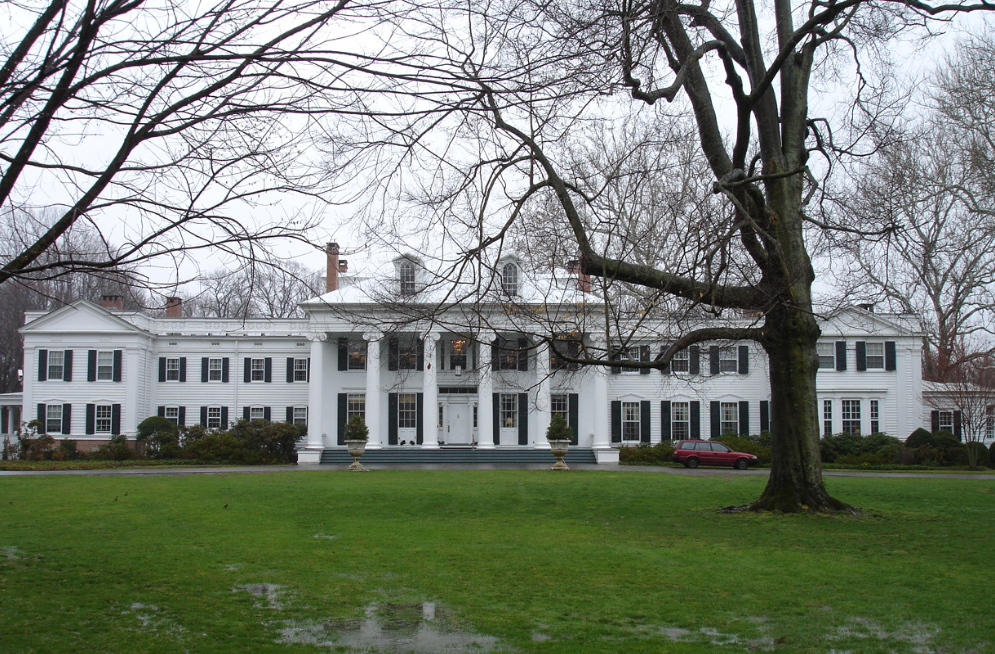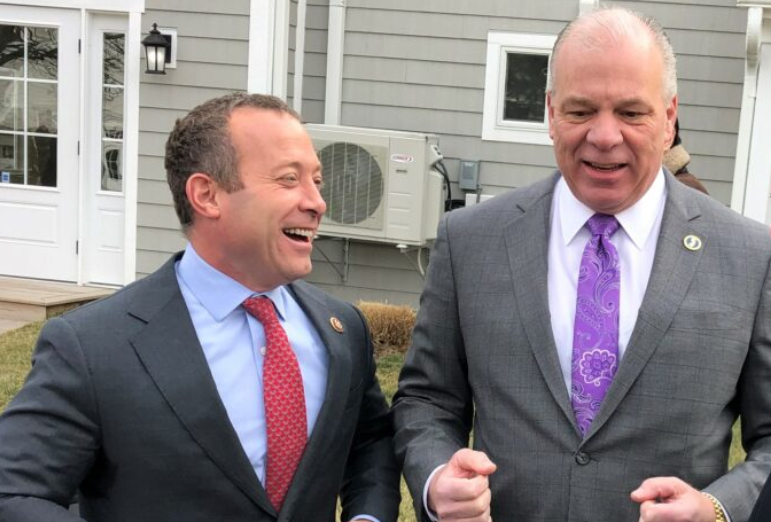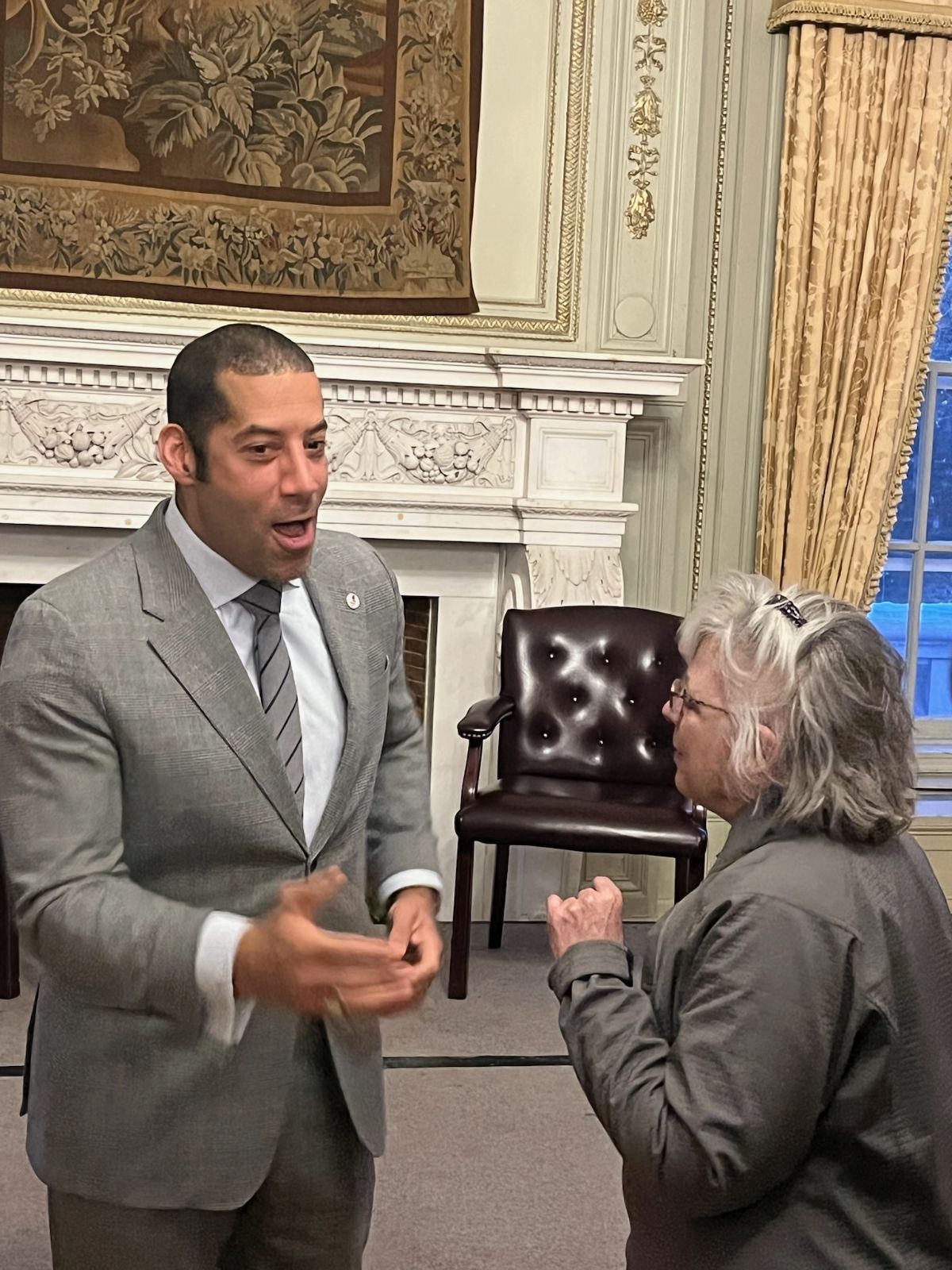
TRENTON – “Transparency” is a word thrown around a lot when it comes to politics.
And so it was no surprise that one of the questions at Sunday’s Democratic gubernatorial debate focused on the demise of the Star Ledger, which printed its last edition on Sunday. While it will continue online, the disappearance of a “real newspaper,” is bound to impact the news site’s viability.
Curiously, with the exception of Steve Sweeney, most of the other candidates really have not been in office long enough to truly recall what a robust Jersey press corp used to be about.
For the record, others on stage Sunday were Ras Baraka, Steve Fulop, Josh Gottheimer, Mikie Sherrill and Sean Spiller.
“It kills me to see the press gone, pretty much gone,” Sweeney said.
Baraka noted that nationwide, news – through social media – is controlled by “tech magnates,” which was a pretty good observation.
Moving the conversation back to New Jersey, it was noted that the administration of Phil Murphy, a fellow Democrat, of course, has had a pretty awful record in regard to transparency.
Recall that it was Murphy who signed bills weakening the state’s election watchdog agency – ELEC – and Open Public Records Act.
None of the candidates supported those moves.
Fulop saw some “good” news in recent events. He noted now-Senator Andy Kim’s successful lawsuit last year against the county line, the indictment of George Norcross and the conviction of Bob Menendez.
His point was that there’s hope for the good guys and for “good government.”
State finances remain the top issue.
A student at Rider University, where the debate was held, noted – like many Republicans do – that the state budget has skyrocketed under Murphy. So how are the candidates going to keep that from happening again if elected?
Gottheimer reiterated his plan to reduce income and property taxes. It is on his website.
Spiller talked about overhauling the procurement process.
Fulop said the state budget needs better oversight – noting that it often gets very quickly-approved at the last minute.
Sherrill talked about her success in bringing money back from Washington.
This was a very polite debate, but that comment prompted Sweeney to say:
“Expecting more federal money from this administration is a pipe dream.”
Donald Trump was not in the room – although he has a golf club in Bedminster.
There was general agreement among the candidates that deportations must be based on the constitution and not done en-masse.
Spiller said we can’t lose sight of who we are, as a nation.
Sweeney said that Barack Obama and Joe Biden deported many immigrants. but that they did it with compassion.
Baraka said Trump’s moves are based on “white supremacy and racism.”
Baraka, the Newark mayor, was the most rhetorical, saying at another point in the debate:
“We can’t fight extremism with moderation.” (Was he channelling Barry Goldwater?)
On the issue of transgender rights, most candidates expressed support for athletes.
Sherrill, however, suggested that this issue – a popular one for Republicans – can take time away from more substantive issues like education and reducing costs.
She said Democrats should not take the bait. In fact, she called some of the hoopla around the issue, “bullshit.”
(Visited 187 times, 187 visits today)
The Democratic gubernatorial candidates in New Jersey recently participated in a debate where they discussed key issues facing the state. The debate, hosted by Insider NJ, provided voters with an opportunity to hear from each candidate on their plans and priorities if elected as the next governor of New Jersey.
One of the key issues discussed during the debate was the state’s economy. Candidates outlined their plans for creating jobs, supporting small businesses, and addressing income inequality. Some candidates emphasized the need for investing in infrastructure and expanding access to education and job training programs to boost economic growth in the state.
Another important topic of discussion was healthcare. Candidates shared their ideas for improving access to affordable healthcare for all residents of New Jersey. Some candidates advocated for expanding Medicaid and implementing a public option, while others focused on lowering prescription drug costs and increasing funding for mental health services.
Education was also a major focus of the debate, with candidates discussing their plans for improving public schools and making higher education more affordable. Some candidates proposed increasing funding for schools in low-income communities and expanding access to early childhood education programs. Others highlighted the need for reducing student debt and increasing support for vocational and technical training programs.
Other key issues discussed during the debate included criminal justice reform, climate change, and affordable housing. Candidates shared their ideas for reducing mass incarceration, transitioning to renewable energy sources, and addressing the state’s housing crisis.
Overall, the debate provided voters with valuable insights into the Democratic gubernatorial candidates’ positions on important issues facing New Jersey. As the election approaches, voters will have the opportunity to evaluate each candidate’s platform and make an informed decision on who they believe is best equipped to lead the state forward.


